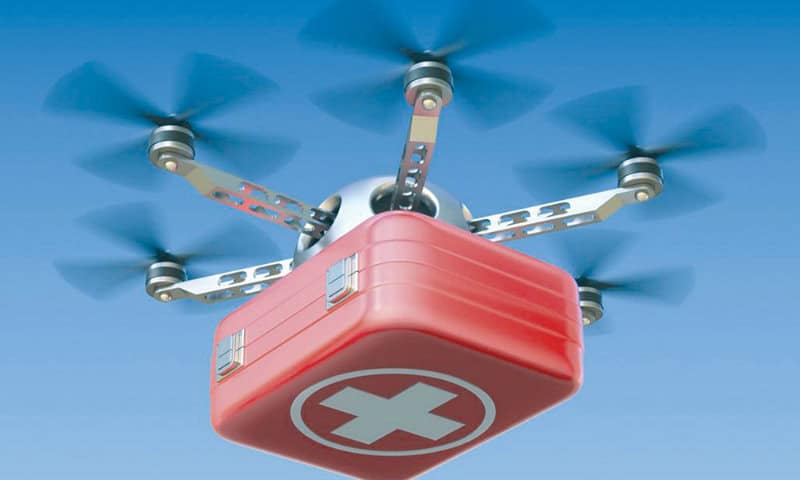KIGALI – Rwanda has started operations of Zipline, which is being hailed as world’s first commercial drone delivery service, using fixed-wing drones that automatically fly to destinations in the central African nation.
Zipline – the US start-up running the project – is made up of engineers who formerly worked at Space X, Google, Lockheed Martin and other tech companies.

The technology promises to make deliveries much faster than had previously been possible by road.
Delivering Blood and Drugs
Its drones will initially be used to deliver blood, plasma, and coagulants to hospitals across rural western Rwanda, helping to cut waiting times from hours to minutes.
The aircraft are launched from a catapult and fly below 500ft (152m) to avoid the airspace used by passenger planes, according to the BBC.

The drones then release small packages attached to parachutes without needing to land at the delivery points before returning.
They have an operational range of 150km (93 miles) but could, in theory, fly almost twice that distance.
The drones, powered by a nose-mounted battery and guide themselves using GPS location data, send back information to both their base and to Rwandan air traffic control via a cellular connection.
To begin with, 15 “zips” will fly round the clock and in up to 30km/h (19mph) winds and light rain if necessary.

Zipline will be paid by Rwanda’s health department on a per delivery basis.
The company says the cost per trip is roughly equal to that of the current delivery method, by motorbike or ambulance.
Drones have already been used for humanitarian purposes elsewhere in Africa, including in a now-ended project to deliver blood and stool samples in Madagascar, and a Red Cross initiative to monitor a refugee camp in Uganda.
Commercial use of drones is still a nascent industry in Africa but there is a small but growing community of hobbyists.
Most governments on the continent have clamped down on drone operators by imposing laws that ban or restrict their use, inadvertently killing innovation and locking the countries out of investments that could create jobs.
In addition to Rwanda, South Africa and Mauritius are leading on the continent, having come up with regulations that allow for licensing and operation.
Morocco, Kenya and Uganda have imposed bans and/or restrictions for operations. In Ghana, drone operators risk up to 30 years in jail if they don’t register their drones.














